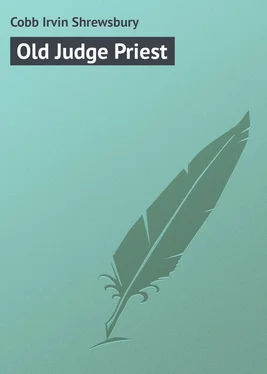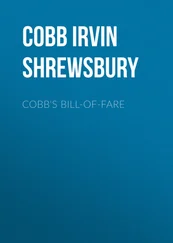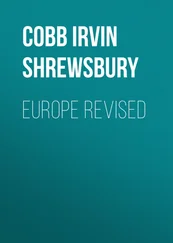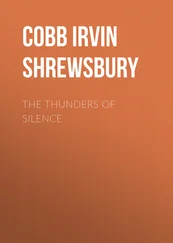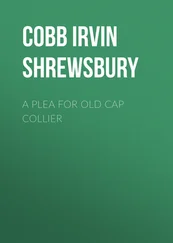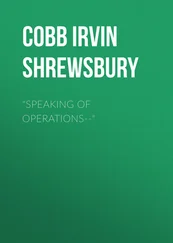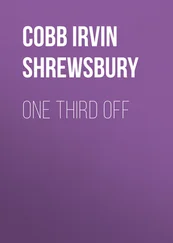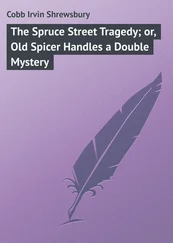Irvin Cobb - Old Judge Priest
Здесь есть возможность читать онлайн «Irvin Cobb - Old Judge Priest» — ознакомительный отрывок электронной книги совершенно бесплатно, а после прочтения отрывка купить полную версию. В некоторых случаях можно слушать аудио, скачать через торрент в формате fb2 и присутствует краткое содержание. Жанр: foreign_prose, на английском языке. Описание произведения, (предисловие) а так же отзывы посетителей доступны на портале библиотеки ЛибКат.
- Название:Old Judge Priest
- Автор:
- Жанр:
- Год:неизвестен
- ISBN:нет данных
- Рейтинг книги:5 / 5. Голосов: 1
-
Избранное:Добавить в избранное
- Отзывы:
-
Ваша оценка:
- 100
- 1
- 2
- 3
- 4
- 5
Old Judge Priest: краткое содержание, описание и аннотация
Предлагаем к чтению аннотацию, описание, краткое содержание или предисловие (зависит от того, что написал сам автор книги «Old Judge Priest»). Если вы не нашли необходимую информацию о книге — напишите в комментариях, мы постараемся отыскать её.
Old Judge Priest — читать онлайн ознакомительный отрывок
Ниже представлен текст книги, разбитый по страницам. Система сохранения места последней прочитанной страницы, позволяет с удобством читать онлайн бесплатно книгу «Old Judge Priest», без необходимости каждый раз заново искать на чём Вы остановились. Поставьте закладку, и сможете в любой момент перейти на страницу, на которой закончили чтение.
Интервал:
Закладка:
As M. Jansen steered his dappled span close up alongside the pavement and brought them to a standstill, Judge Priest looked back and with what he saw was well content. He knew that morbid curiosity might account for the presence of some among this multitude who had come following after him, but not for all, and perhaps not for very many. He nodded to himself with the air of one who is amply satisfied by the results of an accomplished experiment.
For the bearers of the dead he selected offhand the eight men who had marched nearest to him. As they lifted the coffin out from the hearse it befell that our most honoured physician should have for his opposite our most consistent drunk-ard, and that Mr. Crump, who walked in straight and narrow paths, should rub elbows with Beck Giltner, whom upon any day in the year, save only this day, Mr. Crump would have rejoiced to see harried with hounds beyond the corporate limits.
Up the creaking steps and in between the lolling door-halves the chosen eight bore the dead girl, and right reverently they rested their burden on board trestles at the foot of the little box-pulpit, where shafts of sunshine, filtering through one of the small side windows, stencilled a checkered pattern of golden squares upon the white velvet box with its silver handles and its silver name plate. Behind the eight came others, bringing the flowers. It must have been years, I imagine, since the soiled hands of some of these had touched such gracious things as flowers, yet it was to transpire that none among them needed the help of any defter fingers. Upon the coffin and alongside it they laid down their arm loads, so that once more the narrow white box was almost covered under bloom and leaf; and then the yellow pencillings of sunlight made greater glory there than ever.
When the crowd was in and seated – all of it that could get in and get seated – a tall, white-haired woman in a plain black frock came silently and swiftly through a door at the back and sat herself down upon a red plush stool before a golden-oak melodeon. Stool and melodeon being both the property of the fractious True Believers, neglect and poor usage had wrought most grievously with the two of them. The stool stood shakily upon its infirm legs and within the melodeon the works were skewed and jangled. But Mrs. Matilda Weeks’ finger ends fell with such sanctifying gentleness upon the warped keys, and as she sang her sweet soprano rose so clearly and yet so softly, filling this place whose walls so often had resounded to the lusty hallelujahs of shouting black converts, that to those who listened now it seemed almost as though a Saint Cecelia had descended from on high to make this music. Mrs. Weeks sang a song that she had sung many a time before – for ailing paupers at the almshouse, for prisoners at the county jail, for the motley congregations that flocked to Sunday afternoon services in the little mission at the old Acme rink. And the name of the song was Rock of Ages.
She finished singing. Judge Priest got up from a front pew where he had been sitting and went and stood alongside the flower-piled coffin, with his back to the little yellow-pine pulpit and his prayer book in his hands, a homely, ungraceful figure, facing an assemblage that packed the darky meeting house until it could hold no more. In sight there were just five women: the good woman at the melodeon and four other women, dwellers beneath a sinful roof, who sat together upon what the pastor of the True Believers would have called the mourners’ bench. And all the rest were men. Men sat, row on row, in the pews; men stood in the single narrow aisle and against the walls round three sides of the building; and men appeared at the doorway and on beyond the doorway, upon the porch and the steps.
I deem it to have been characteristic of the old judge that he made no explanation for his presence before them and no apology for his assumption of a role so unusual. He opened his black-bound volume at a place where his plump forefinger had been thrust between the leaves to mark the place for him, and in his high, thin voice he read through the service for the dead, with its promise of the divine forgiveness. When he had reached the end of it he put the book aside, and spoke to them in the fair and grammatical English that usually he reserved for his utterances from the bench in open court:
“Our sister who lies here asked with almost her last conscious breath that at her funeral a sermon should be preached. Upon me, who never before attempted such an undertaking, devolves the privilege of speaking a few words above her. I had thought to take for my text the words: ‘He that is without sin among you, let him first cast a stone at her.’
“But I have changed my mind. I changed it only a little while ago. For I recalled that once on a time the Master said: ‘Suffer little children to come unto Me, and forbid them not: for of such is the kingdom of Heaven.’ And I believe, in the scheme of everlasting mercy and everlasting pity, that before the eyes of our common Creator we are all of us as little children whose feet stumble in the dark. So I shall take that saying of the Saviour for my text.”
Perhaps it would be unjust to those whose business is the preaching of sermons to call this a sermon. I, for one, never heard any other sermon in any other church that did not last longer than five minutes. And certainly Judge Priest, having made his beginning, did not speak for more than five minutes; the caressing fingers of the sunlight had not perceptibly shifted upon the flower-strewn coffin top when he finished what he had to say and stood with his head bowed. After that, except for a rustle of close-packed body and a clearing of men’s huskened throats, there was silence for a little time.
Then Judge Priest’s eyes looked about him and three pews away he saw Ashby Corwin. It may have been he remembered that as a young man Ashby Corwin had been destined for holy orders until another thing – some said it was a woman and some said it was whisky, and some said it was first the woman and then the whisky – came into his life and wrecked it so that until the end of his days Ashby Corwin trod the rocky downhill road of the profligate and the waster. Or it may have been the look he read upon the face of the other that moved Judge Priest to say:
“I will ask Mr. Corwin to pray.”
At that Ashby Corwin stood up in his place and threw back his prematurely whitened head, and he lifted his face that was all scarified with the blighting flames of dissipation, and he shut his eyes that long since had wearied of looking upon a trivial world, and Ashby Corwin prayed. There are prayers that seem to circle round and round in futile rings, going nowhere; and then again there are prayers that are like sparks struck off from the wheels of the prophet’s chariot of fire, coursing their way upward in spiritual splendour to blaze on the sills of the Judgment Seat. This prayer was one of those prayers.
After that Judge Priest bowed his head again and spoke the benediction.
It turns out that I was right a while back when I predicted this chapter of this book might end with Judge Priest sitting at his desk in his room at the old courthouse. On the morning of the day following the day of this funeral he sat there, putting the last words to his decision touching upon the merits of the existing controversy in the congregation of the True Believers’ Afro-American Church of Zion. The door opened and in walked Beck Giltner, saloon keeper, sure-thing gambler, handy-man-with-a-gun, and, according to the language of a resolution unanimously adopted at a mass meeting of the Law and Order League, force-for-evil.
Beck Giltner was dressed in his best. He wore his wide-brimmed, black soft hat, with its tall crown carefully dented in, north, east, south and west; his long black coat; his white turn-down collar; his white lawn tie; and in the bosom of his plaited shirt of fine white linen his big diamond pin, that was shaped like an inverted banjo. This was Beck Giltner’s attire for the street and for occasions of ceremony. Indoors it was the same, except that sometimes he took the coat off and turned back his shirt cuffs.
Читать дальшеИнтервал:
Закладка:
Похожие книги на «Old Judge Priest»
Представляем Вашему вниманию похожие книги на «Old Judge Priest» списком для выбора. Мы отобрали схожую по названию и смыслу литературу в надежде предоставить читателям больше вариантов отыскать новые, интересные, ещё непрочитанные произведения.
Обсуждение, отзывы о книге «Old Judge Priest» и просто собственные мнения читателей. Оставьте ваши комментарии, напишите, что Вы думаете о произведении, его смысле или главных героях. Укажите что конкретно понравилось, а что нет, и почему Вы так считаете.
